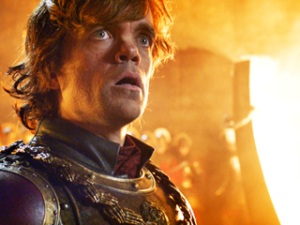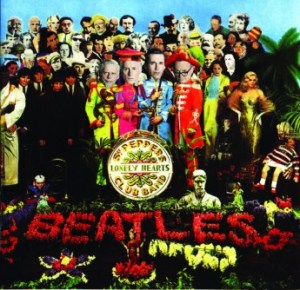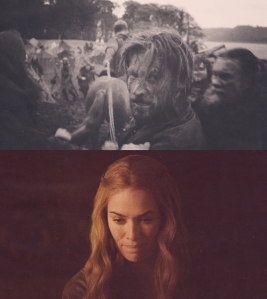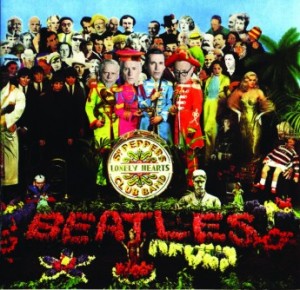BY JOANNA HAYES
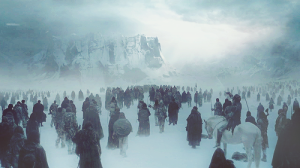
In a stunning and sprawling Season 2 finale, “Valar Morghulis” does far more to lay the groundwork for the next season than to tie up the current one. According to the narrative structure they have crafted over the last two seasons, the creators of HBO’s “Game of Thrones” have chosen to host the major climax of the arc in Episode 9, with Episode 10 acting more as a means to tie up a few storylines and introduce threads that will not reach significance for at least a year’s time. As is characteristic of George R.R. Martin’s source material, there are so far more questions than answers. Yet the writers have still managed to garner a deep satisfaction in the mystery and promise of the story despite the fact that it is not tied off neatly at the end of each season. Clearly, we have a long way to go with each of these characters, and I am only sad that our journey with them has ended for the next several months.
Another strength of the show’s finales is that they have never featured a cliffhanging ending that you know will be explained away in the first five minutes of the next season. Instead, the show used the final scene of both season finales to further a key theme: magical elements are amassing at the edges of this world, largely forgotten by the people at the center (and, admittedly, the audience as well). All of us – we, as television viewers, and the characters we’ve been watching – have been focused on the power struggles between the potential kings of Westeros without paying much heed to the supernatural forces that may eventually stand to render all of this season’s moral and amoral grandstanding completely moot. So far, this threat exists only at the edges of their known geography and series’ seasonal narrative.
The mainland power struggles at the center of the second season have been the strongest of all the narrative’s themes, and the one that has interested me the most. This is, after all, the “game of thrones,” with the Iron Throne acting as a symbol of any concept of influence and the “game” representing how several players with different concepts of how best to achieve power can come to be laid out like pieces on a chessboard. We have seen as many different concepts of power as there are characters vying for it. The episode has to check in on so many different power brokers that each of the scenes are concise clips. Though wonderfully done, they can hardly satiate the appetite for our favorites. How can the season possibly be over already?
Earlier this season, Cersei declared that “power is power.” We don’t know how Cersei would be if she did not already hold her position as acting queen, but it is safe to assume that she has few skills more advantageous than the freedom her present position affords her. She derives legitimacy for her actions simply from her right to rule. In the finale, she exerts her power to yet-unknown consequences in her orchestration of the throne room sequence where Sansa Stark is replaced by Margaery Tyrell. (Side note: how wonderful is it that this scene is introduced with Tywin’s horse defecating into a huge pile right before Cersei’s charade begins?)
How wise was this decision? Cersei seems all too happy to be rid of Sansa, though she may not yet realize that Margaery is arguably a much more formidable and power-hungry player. As symbolized in the girl’s giant sigil necklace, which features a large flower dangling to distraction over her breast, the Tyrells are a mighty family in terms of both wealth and popularity. Their strength will not fold quickly or easily into the Lannisters, even after the betrothal. While their alliance was critical in the defense of King’s Landing, the impending wedding of the Lannisters to Tyrells will host a great rivalry within reach of the Iron Throne itself. Cersei has given up something of a pet in Sansa, and may not yet realize that Margaery will behave more more like an equal than like the obedient and subservient Stark girl. This new rivalry holds much promise for some dynamic scenes in Season 3.
To Margaery herself, power is an end to which any means are justified. She has already proven to be a schemer of epic proportions in her quest to become not just “a queen” but “the queen.” Easily sensing the shifts in power that many characters seem incapable to recognize, Margaery has bet on the Lannisters and – just as she was with Renly – seems ready to play the part of devoted queen with Joffrey. As she tempts and teases both his pride and his hormones with an expert touch, she lures the whole court into believing her sincere desire to serve the king. Only her brother, Ser Loras, whose eyes shift about the room with perceptible discomfort, seems to acknowledge that it is a dangerous bargain. Margaery, meanwhile, is unflinchingly confident. As the viewers, we are uncertain what will be in store for Joffrey’s new future bride, but in her steadfast and sure conviction that she will be queen no matter what, it seems hauntingly clear that, like Renly’s homosexuality, Joff’s sadism may be knowingly and willfully tolerated.
As Margaery and Cersei may yet prove to be, Littlefinger already has his own rival in Varys. The two of them are shown to be incredibly smart and underhanded; to both men, “knowledge is power” (as Littlefinger declared earlier in the season). When the clouds break over Sansa’s longstanding agony, and she takes a rare moment to smile to herself after the throne room ceremony, who else but Littlefinger to teach her to fear again? Littlefinger enlightens her to the reality of Joffrey’s lasting hold over her, despite the broken betrothal. In many ways, Sansa is in more danger now than she was before, and for the second week in a row she turns down a grown man’s offer to take her home. While naive on first blush to think herself safe from harm, she is at least now wise enough to be distrustful of men like Littlefinger and The Hound. With his offer rejected, Petyr Baelish admonishes her. “We’re all liars here,” he says. “And every one of us is better than you.” We have seen him try to secretly court favor with many different parties this season, including Catelyn Stark, and it is not yet clear how he meant to use Sansa to his own ends. As is typical, only Littlefinger knows.
In all the Seven Kingdoms, no one seems to know as much as Varys and Petyr. It is interesting how clear this is despite the fact that we, as the audience, still do not know what we do not know about their knowledge. Even after two seasons, their web of influence remains clearly strong, yet mysterious. Both collect and trade secrets and lies, and use them to arm themselves (a landless man and a eunuch) in their quest for more power. And it works: Petyr is given a landed nobleman’s rights to Harrenhal (though a castle ruin, it sits on land three times the size of Winterfell), as Varys propositions Ros to acquire more little spies and spiders within Petyr’s employ.
Knowledge could also be power for Tyrion, who lives to use his wit to outmaneuver those around him, especially his own relatives. Though he played a significant part in the victory at King’s Landing, he is overlooked in the glory of remembering that great event, as he’s probably been overlooked all his life. Because of his stature, it is easy to do, despite the fact that he truly is one of the best players of the game. It is as if he was built for it, his mind working several steps ahead of his peers’ in both his cunning and humanity to make up for his lesser physical strength.
No one understands this better than Tyrion himself. In one of the show’s most emotionally touching scenes, Shae suggests that they run away together. After all, with his title as acting Hand of the King restored to his father, his value to the Lannisters is increasingly dubious and, therefore, his life is increasingly at risk. However, despite the promise of a life lived on Shae’s terms (“Eat, drink, fuck, live!”), Tyrion cannot deny his nature. He does not expect her to stay at her own peril for a life much harder than they one they could live together in the Free Cities, but she does so out of genuine feelings for him. For what must be one of the first times in his life, Tyrion’s affections are returned in spades, and he is able to find support in the one person who matters most.
In another rare romantic moment, Robb Stark weds the landless Talisa against all advice and counsel, choosing love at the sacrifice of an important marriage pact with the Freys. In doing so, Robb has effectively removed himself from the power play. Before, the Stark boy’s bid for power was entirely dependent on the intense fielty of his father’s bannermen. He treated his vassals well and fairly (better than any other lord in Westeros), always making sure to serve them with honor and justice. Because of that, he earned their respect and, more importantly, their support. Now, however, by shirking his responsibilities to the greater whole, Robb has chosen to follow his heart and singular destiny at his own peril. Much like his father, his power in Westeros relied on the allegiance of his men as well as his infallible sense of duty and honor. There is little duty or honor in the marriage, and the repercussions of this will inevitably affect the power he maintains into the next season.
To a man like Jaqen H’ghar, power is in the honest acknowledgement that – as the episode’s title (Valar Morghulis) translates: “all men must die.” Jaqen is firmly rooted in the realities of the world while at the same time existing in a mystical alternative where he can assassinate anyone with as much ease as his face can change shape. Arya is his pupil, and as a result, she too may learn to play the game with realpolitik. But first, Arya feels it is her duty to find and reunite her scattered family. After a whole year in captivity, Arya’s true power has yet to be revealed. Now that she is released at last, we can expect even more from this fan favorite in the upcoming season.
In an interesting contrast, Theon Greyjoy invokes his peoples’ famous motto “What is dead may never die!” to rally his troops to an improbable defense against 500 unnamed northern troops outside the Winterfell gates. Theon, agonizing over two very unsavory options (face a real danger or flee to humiliation among his father’s camp) can hardly believe this conviction himself. It is clear that he fears death very much, but he fears his father’s disapproval even more. Theon is weak, hardly a power player at all, and therefore worthy of pity, even if not admiration. It is unclear at this point if he is alive or dead, or what became of him after the sacking of Winterfell, but Theon’s fate is befitting of someone who has always been powerless in a power-hungry world.
Then there are Dany and Jon Snow, both of whom learn the valuable lesson of power gained through both duty and deception. Dany is finally released from the yoke of relying on others to take care of her (though, I’m still not convinced that she won’t continue to rely heavily on Ser Jorah). After a whole season of reacting to others instead of driving her own destiny, the Mother of Dragons finally strikes out on her own to enter the House of the Undying and face those who kidnapped her surrogate children. Though she is tempted by visions put forth by the warlocks of Qarth who hope to keep her there and harness the power she lends her dragons (we see a touching sequence with Khal Drogo and her unborn son, as well as a glimpse of the Iron Throne within her reach), she puts aside what her heart wants in order to fulfill her duty – something Robb Stark proved unable to do.
North of the Wall, Robb’s half-brother Jon also does his duty by killing Qhorin Halfhand, his mentor and brother of the Night’s Watch. When Qhorin challenges him right on the edge overlooking the wildling camp, Jon is forced to slay him in order to gain the trust of the enemy and enter the camp as a spy instead of a prisoner. Hard as it must have been for Dany and Jon to do their duty, they both acquire an interesting level of newfound power going into Season 3:, something that will hopefully bolster the strength of their presently-lacking character arcs.
As for the power of deception, Jon and Dany both learn the strength of clever lies. First, Xaro Xhoan Daxos proves not to be as he seems, having achieved power as ruler of Qarth on the basis of an empty vault. When Dany realizes this, hoping to loot the man for treasures enough to get the ships she desires, she tells him, “Thank you for teaching me this lesson.” His ability to fool others into believing he is something he is not made him the most powerful man in Qarth. Dany is still very much a “little girl” (as she calls herself in the House of the Undying), so it is the dragons that will play the same role as the empty, locked vault, lending her the strength she needs – the strength that does not yet come naturally.
Meanwhile, Jon will have to use deception to convince the highest ranks among the wildling camp – including the King Beyond the Wall, Mance Rayder – that he is a true defector of the Night’s Watch, as Mance himself once was. This will not be easy, and he is in an incredibly perilous position if he fails to deceive them well enough. Given Jon’s tendency towards prudish honesty and pride, lying will be a critical challenge. If he succeeds, he may potentially save all of Westeros from an unwanted war at their northern border, for which everyone is unprepared. While Jon’s motivations for joining the Wall are not always as clear as they should be, what is clear is that he yearns for respect and for finding his place in a world where he’s never fully belonged. Becoming who he is not might be the only way he can truly become who he ought to be.
Stannis, agonizing in his defeat and (rightly) questioning the sorceress whose prophecies led him to believe that he would win at the Blackwater, believes his power lies on moral and theological high grounds. Stannis represents the belief in power as a divine right. Because of this, Melisandre successfully implores him to carry on despite defeat. The battle for the Seven Kingdoms is quickly becoming akin to a holy war for Stannis as he seeks to stamp out all infidels: the incestuous Lannisters and all other pretenders to the throne. Though he is initially troubled by the burden of knowing that, in order to reach the ends he seeks, he had to murder his own brother, he justifies this action quickly with the help of his priestess, who calls him “the Son of Fire… the Warrior of Light.” Power, for Stannis, is his divine right, and it is for this reason that men like Varys and Tyrion are right to be scared of a Baratheon victory.
It is clear that Stannis derives his power from something very unlike the other men and women on the show, but the realities of his quest for influence are no different. Melisandre perfectly frames this overall theme of power and the justifications people give in order to achieve it when she says to him: “This war is just begun. It will last for years. Thousands will die at your command. You will betray the men serving you, you will betray your family, you will betray everything you once held dear, and it will all be worth it, because…you will be king.” So far, the only character who has decided it would not be worth it is Robb Stark.
At the very end of last season, Dany emerged from the fire with her dragons: a political trump card that has not yet been played, given the fact that so far the dragons have been able to roast little more than small hunks of raw meat and an equally-slight Pyat Pree. This season, an army of White Walkers (a.k.a. the Others) and their wights (the zombie-like dead men raised by the Others) march south in a great column of terror that will not form alliances or hesitate to behead a captive woman. Last season, there was fire; this season, there is ice (A Song of Ice and Fire is the book series’s official title, after all). These scenes serve as momentous reminders of forces that are beyond comprehension for most of the inhabitants of this world, letting us in on the secret of their threat and garnering a real sense of potential futility in us all. In this world as much as in the world of “Game of Thrones,” there are large forces at work that exist beyond national boundaries and any one person’s control. Most of the time, we ignore the real potentiality of these circumstances until it is too late, which also seems to be the preferred method in Westeros. When the Others and the dragons descend on King’s Landing, will it even matter who was the superior power broker, or who holds the Iron Throne?
Other thoughts on “Valar Morghulis”:
– Despite a recent dip in ratings, “Game of Thrones” viewership was up in the finale. 4.2 million tuned in for Sunday’s episode (not counting the later viewers via HBO GO and repeat showings on the many HBO networks), which was 38 percent higher than last season’s finale, according to Variety. This is good news and bodes well for the continued growth and support of the show. Let’s all hope that we get to see the whole thing through!
– In case you are hoping to play catch-up with the books over the summer, Season 3 should feature about half of Book 3, A Storm of Swords. This is, in my opinion, the most mind-blowing and epic of all the novels in the series. If it is at all possible, I would highly recommend reading the books up until this point or staying very cautious as you go through the internet, Twitter, Tumblr or the comments sections on blogs. Trust me, you do not want to be spoiled for this one.
